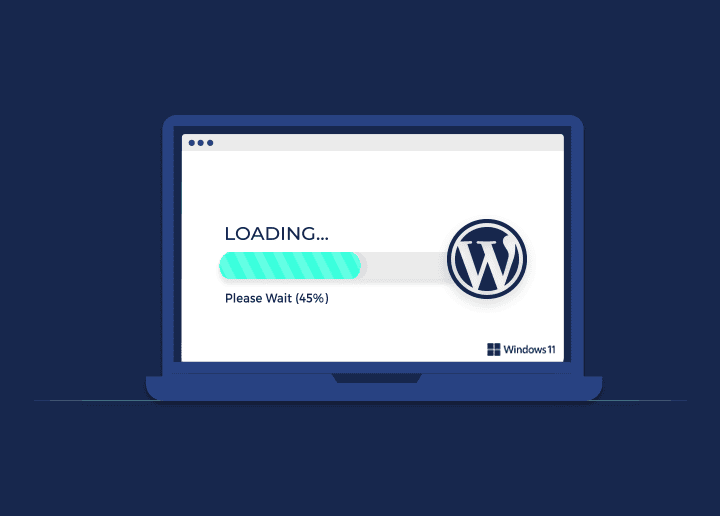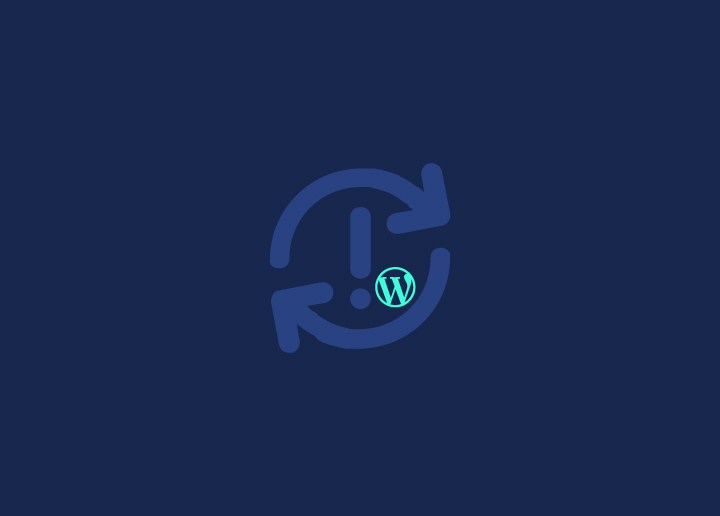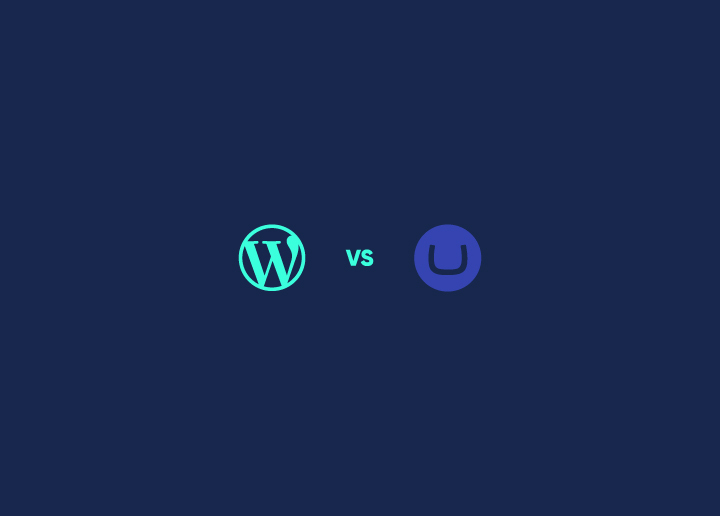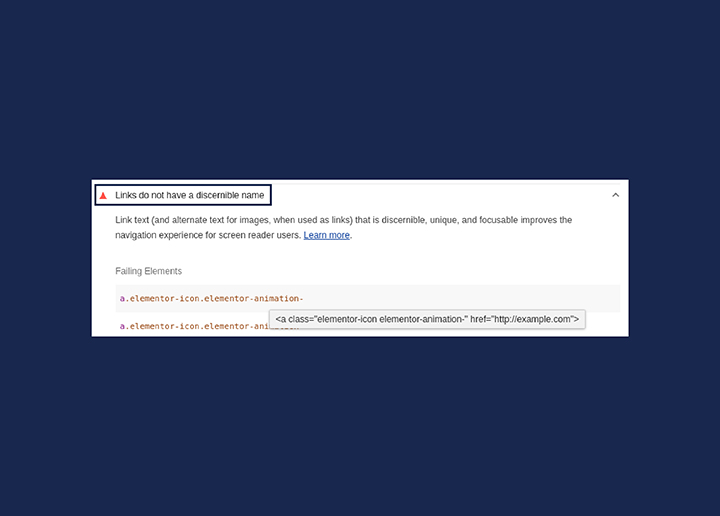In an era where you can order everything, from dinner to a ride or even a plumber, with a simple click or tap, winning the attention of online users is both an art and a science. Your website isn’t just a digital placeholder; it’s more like the central nervous system of your online presence. And Technical SEO? That’s the lifeblood, ensuring your site isn’t just seen but also navigable, fast, and ready to convert visitors into customers.
As search engine algorithms become more nuanced, Technical SEO has evolved from being a backend concern to a frontline necessity. It’s no longer an optional add-on but an essential part of your overall online strategy, a cornerstone for building a high-performing, user-friendly website.
With Google’s increasing focus on core web vitals and mobile-first indexing, mastering the nuances of Technical SEO is not just a trend for 2023; it’s a requirement for anyone serious about maintaining or growing their digital footprint.
Let’s delve into the most crucial Technical SEO tips that can serve as your roadmap for online success!
Contents
ToggleTechnical SEO vs. On-Page SEO vs. Off-Page SEO
On-Page SEO, Off-Page SEO, and Technical SEO are three fundamental aspects of search engine optimization (SEO) that improve a website’s visibility in search engine results pages (SERPs). Here’s a more detailed explanation of each:
On-Page SEO
On-page SEO focuses on optimizing individual web pages to improve their relevance and match with specific search queries. It involves optimizing the content and HTML elements of a page.
- Key Elements: On-page SEO includes optimizing elements like keyword usage, meta titles and descriptions, header tags (H1, H2, etc.), image alt text, URL structure, internal linking, and the overall quality of the content.
- Importance: On-page SEO helps search engines understand the context and content of your pages. Well-optimized on-page elements make it easier for search engines to rank your pages for relevant search queries.
Read: Best WordPress SEO Agencies
Off-Page SEO
Off-page SEO focuses on factors outside your website that influence your site’s authority and credibility. It involves activities aimed at building your website’s reputation and authority in the eyes of search engines.
- Key Elements: The most prominent element of Off-Page SEO is building high-quality backlinks (links from other websites to yours). Other factors include social signals (engagement on social media), brand mentions, and online reputation management.
- Importance: Off-page SEO indicates to search engines how trustworthy and authoritative your website is based on the links and mentions it receives from other reputable sources. High-quality backlinks can significantly boost your website’s rankings.
What is Technical SEO?
Technical SEO is a sub-discipline within the broader field of SEO focused on optimizing the infrastructure of a website. Unlike on-page SEO, which deals with optimizing the content on your site including category pages, or off-page SEO, which involves building links and other external signals, Technical SEO is all about ensuring that search engines can easily find, crawl, interpret, and index the pages on your website.
Read: Your 6-Point Website SEO Checklist
Key Components of Technical SEO
- Finding Site’s SEO-Related Issues: A primary function of Technical SEO is to identify problems that could hinder your website’s performance or visibility. These issues range from broken links and 404 errors to lengthy titles and missing meta descriptions. Many tools are available to perform comprehensive site audits that can flag these issues for you.
- Site Penalties: Websites that violate Google’s Webmaster Guidelines can face penalties, severely affecting their ranking. Technical SEO helps to identify any penalties or warnings so they can be promptly addressed.
- Site Audits: Once issues and penalties are identified, conducting a thorough site audit will help you fix them. This audit can include optimizing your site’s speed, ensuring a mobile-friendly design, resolving duplicate content issues, and improving your website’s architecture for better usability.
Read: Google News SEO Optimization Guide
Why Technical SEO Matters?
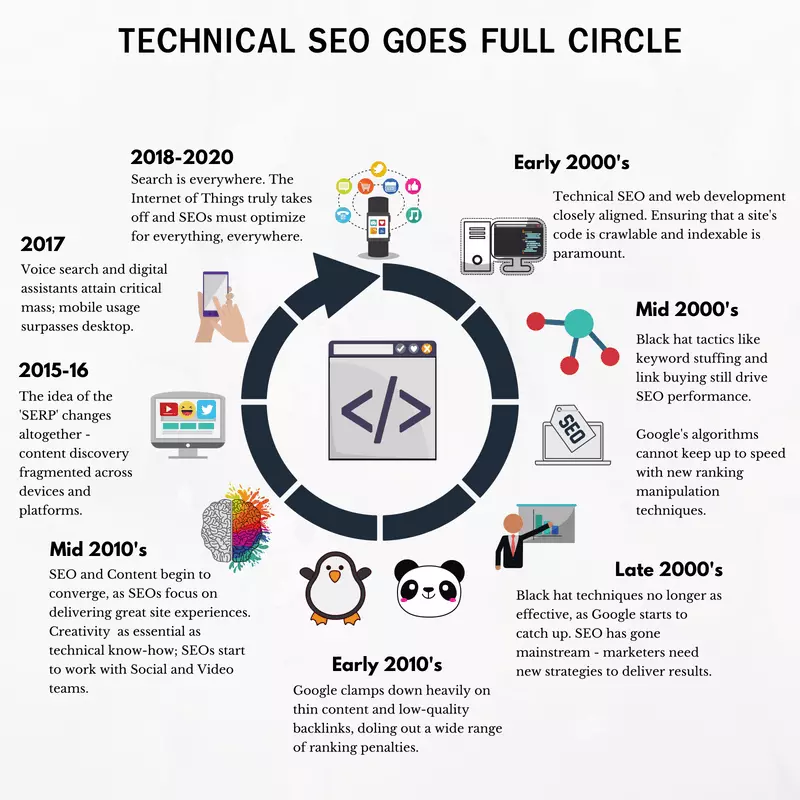
When done well, Technical SEO creates a strong foundation for your website that allows you to maximize usability, search engine crawling, and indexing. A website optimized for Technical SEO is like a well-oiled machine: not only is it more likely to be found by search engines, but it’s also more efficient, usable, and easier to navigate for your visitors. These optimizations can’t be overlooked in an era where user experience is increasingly becoming a ranking factor.
Here are some compelling reasons why Technical SEO matters:
Improved Crawlability and Indexing
Search engines use bots to crawl and index pages across the vast landscape of the internet. Technical SEO ensures these bots can easily crawl multiple pages of your website and index your content. A site with good Technical SEO will have a well-structured XML sitemaps, robots.txt files, and other elements that guide search engines effectively.
Read: Top White-Label SEO Service Providers
Enhanced User Experience
Speed, mobile-friendliness, and website usability are critical for keeping mobile users engaged. A technically sound website is more likely to provide a superior user experience, which keeps visitors on your site longer and improves your site’s ranking.
Efficient Use of Resources
By optimizing your site from a technical standpoint, you make more efficient use of server resources and bandwidth. This can result in quicker load times and a better user experience, which can have positive SEO implications.
Foundation for Other SEO Efforts
Your content and backlinking strategies won’t matter much if search engines can’t properly crawl and index important pages on your site. Technical SEO lays the groundwork for your other SEO activities to be effective. Without it, your on-page and off-page efforts may go to waste.
Read: Top 5 SEO Tools For Your Website
Competitive Edge
As more websites become savvy to the nuances of SEO, the online space becomes increasingly competitive. Technical SEO can be a tiebreaker when content quality and backlink profiles between competitors are similar. A well-optimized site will likely rank higher, attracting more traffic and conversions.
Adaptability to Algorithm Updates
Search engines are constantly updating their algorithms. A website optimized for Technical SEO is generally more resilient to these changes and is better prepared to adapt quickly, thereby preserving its rankings.
Read: Complete Guide To White-Label SEO
Monitoring and Problem-Solving
Technical SEO isn’t a “set it and forget it” task. Continuous monitoring is required to identify and resolve new issues. Tools like Google Search Console can provide valuable insights into your site’s performance, allowing you to spot potential issues before they escalate.
Increased Local Visibility
With mobile browsing on the rise, local search is more important than ever. Technical SEO plays a crucial role in local search rankings through aspects like local keyword optimization, mobile-friendliness, and localized meta descriptions, among other factors.
Read: How To Do An In-depth SEO Audit
Advanced Technical SEO Tips & Techniques to Implement 2023
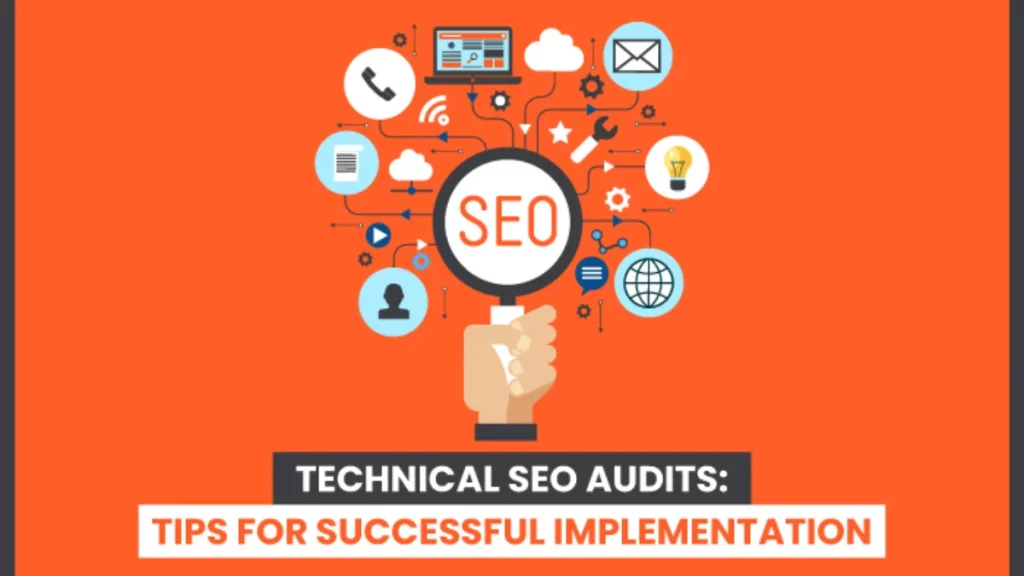
Technical SEO has evolved to become more sophisticated and intricate than ever. Staying ahead in this competitive landscape requires more than just the basics. Here are some advanced Technical SEO tips to implement:
Make Your Blog Mobile-Friendly
With Google’s shift to mobile-first indexing, a mobile-friendly website isn’t a luxury; it’s a necessity. Not only does it affect your rankings, but it also impacts the user experience.
How to implement:
- Use responsive design to ensure your website adapts to different screen sizes.
- Optimize images and videos so they load quickly and fit the screen properly.
- Run your website through Google’s Mobile-Friendly Test for specific recommendations.
Read: Best Keyword Research Tools
Check Your Site’s Crawlability
If search engine bots can’t crawl duplicate page of your site, they can’t index it, which means it won’t appear in search results.
How to implement:
- Regularly update and submit your XML sitemaps to search engines.
- Use robots.txt to control how search engines crawl your pages.
- Use tools like Google Search Console’s URL Inspection Tool or Screaming Frog SEO Spider to identify crawl errors.
Speed Up Your Website Loading Times
Site speed is a ranking factor for Google, and slow load times can also negatively impact user experience.
How to implement:
- Optimize images using compression tools.
- Minimize HTTP requests by reducing the number of elements loaded on a page.
- Use Content Delivery Networks (CDNs) to distribute the load, saving bandwidth and speeding up user access.
Related: Simple Ways To Find SEO-Friendly Blog Topics
The Importance of HTTPS
HTTPS encrypts the data between your website and the user, adding layer of security. Google has confirmed that HTTPS is a ranking factor.
How to implement:
- Acquire an SSL certificate and install it on your server.
- Update all internal links and external links to HTTPS.
- Set up 301 redirects from HTTP to HTTPS.
Improve Your Website’s Architecture
A well-structured website helps search engines understand your content and its relevance better. It also makes navigation easier for users, leading to lower bounce rates and higher engagement.
How to implement:
- Use a flat architecture where each page is accessible within 3-4 clicks from the homepage.
- Implement breadcrumb navigation to help users and search engines understand the site structure.
- Optimize URL structures to be descriptive and include keywords where relevant.
Conduct On-Page Technical SEO Checks
Regularly conducting on-page technical SEO checks is a proactive way to identify and fix issues that could hinder your site’s performance or search engine rankings.
How to implement:
- Evaluate meta titles, descriptions, and header tags for optimization
- Check for broken links or redirects
- Ensure all images have alt attributes
- Examine internal linking structure and anchor text
Read: SEO Practices To Avoid If You Want To Stay Relevant
Check Your Site Speed
Page speed is a crucial ranking factor for search engines. Slow loading times not only affect your rankings in search engine spiders but can also drastically reduce user engagement and conversions.
How to implement:
- Use tools like Google’s PageSpeed Insights, GTmetrix, or Pingdom for comprehensive analysis
- Optimize images and utilize lazy loading
- Leverage browser caching and minimize server response times
- Implement a Content Delivery Network (CDN)
Boost Site Performance With Our Free Speed Test
More than speed—get health checks, downtime alerts, and security scans.
Leverage Your Analytics and Compare Site Metrics
Web analytics provide actionable insights into how well your SEO strategies are working. Comparing metrics over time can help you make informed decisions.
How to implement:
- Use Google Analytics, Search Console, or other analytics tools to track key metrics
- Monitor organic traffic, bounce rate, and conversion rates
- Evaluate keyword performance and backlink profile
- Track user engagement metrics like session duration and pages per session
Implementing these advanced Technical SEO techniques can give you an edge in 2023, ensuring that your website isn’t just keeping pace with industry standards but is at the forefront of SEO innovation. By focusing on these areas, you can improve your search rankings, enhance user experience, and ultimately drive more organic search traffic to your site.
Further Reading: Programmatic SEO: A Detailed Guide
Crucial Technical SEO Mistakes to Avoid for a Better-Performing Website in 2023
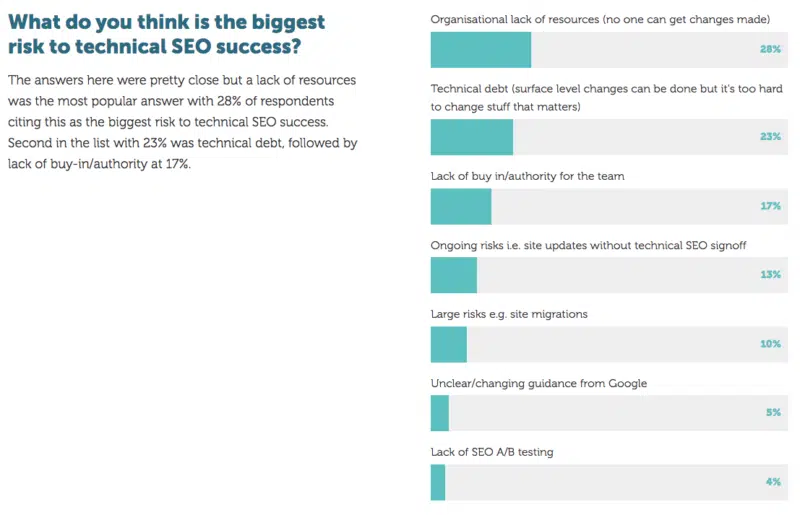
- Eliminate Duplicate or Thin Content: Search engines like Google penalize websites with duplicate or “thin” content that offers no new information. It’s crucial to perform a technical SEO audit to identify duplicate content on your web pages and replace it with unique, valuable information.
- Repair Broken Internal Links: Broken internal links can hamper the user experience and make it easier for search engine crawlers to index your site effectively. Always check for broken links as part of your technical SEO strategies.
- Minimize Use of Pop-Ups: While pop-ups can effectively capture email addresses or offer promotions, they can also be detrimental to your search result rankings, especially on mobile devices. Limit their use or make sure they are easily dismissible.
- Prioritize Website Security: Search engines give preference to secure websites. Make sure your site uses HTTPS to protect user data and improve your search result rankings.
- Be Cautious with External Links: Linking to spammy or low-quality external websites can damage your site’s credibility. Be selective when linking out, and ensure that the websites you link to are reputable and relevant.
Read: Common Technical SEO Issues And Best Practices
By avoiding these common pitfalls, you’ll improve your website speed and site’s technical optimization, making it easier for search engine crawlers to index your content and boosting your position in search results. Remember that maintaining a well-structured URL and focusing on other technical SEO elements are essential for your website’s success.
Final Thoughts: Technical SEO in 2023
In a digital age that evolves by the minute, it’s clear that the complexities of SEO, particularly Technical SEO, can no longer be overlooked or pushed to the periphery of your digital strategy. As we move into 2023, when the search landscape is more dynamic than ever, your commitment to Technical SEO could determine between online visibility and obscurity.
From ensuring mobile-friendliness and site crawlability to focusing on advanced techniques like website architecture optimization and HTTPS implementation, Technical SEO offers strategies to position your website favorably in search engine rankings. These are not just algorithms we are trying to please; it’s also about delivering a seamless and secure user experience. Both elements go hand in hand, influencing your website’s authority and trustworthiness.
Seek Technical SEO Experts Now!
If Technical SEO feels overwhelming or beyond your scope, seeking expert help can be game-changing. At Seahawk, we specialize in managed Technical SEO services tailored to meet the individual needs of your business. We aim to provide you with a robust, scalable, and future-proof SEO strategy that stands the test of time.
So, don’t put it off any longer. The future is now, and the digital realm waits for no one. Invest in Technical SEO today and watch your website grow in search engine rankings, user experience, and overall online performance.
Struggling with Technical SEO?
We get it, Technical SEO can be tricky. Let us handle the hard stuff so you can focus on what you do best.
FAQs on Technical SEO Audits and Common Issues
A technical SEO audit aims to identify issues affecting a website’s visibility in search engine results. Key components often scrutinized in such an audit include:
Duplicate Content: To ensure there is no repetitively identical content across various web pages.
URL Structure: Examining if URLs are SEO-friendly and well-formatted.
Internal Links: Checking the status and structure of internal links to improve site navigation and indexing.
Page Speed: Measuring how quickly web pages load, as this can affect both user experience and search ranking.
Security: Checking whether the site is secure (HTTPS) as this is a ranking factor for search engines.
Meta Tags and Descriptions: Ensuring that these are optimized and relevant to the content.
Mobile Optimization: Confirming the website is fully functional and optimized for mobile devices.
Broken Links: Identifying any internal or external links that return a 404 error.
While both terms are often used interchangeably, they can refer to other sites with slightly different sets of activities:
Technical Site Audit: This is broader and may include factors like website architecture, user experience, and overall performance.
Technical SEO Audit: This is more specialized, focusing primarily on elements that directly affect how well your website performs in search engine rankings. It includes checks for SEO-specific issues like duplicate content, meta descriptions, URL structure, etc.
Both audits aim to improve the website, but a technical SEO audit is more concentrated on optimizing for search engine performance.
Common technical SEO problems that could negatively affect your search rankings include:
Duplicate Content: Having the same content across multiple web pages.
Broken Internal Links: Dead or broken links within your site can negatively impact user experience and SEO.
Slow Page Load Speed: Slow-loading pages can lead to higher bounce rates and lower rankings.
Unoptimized Images: Large, unoptimized images can slow down your website.
Lack of HTTPS: Not having a secure website can affect your search engine rankings.
Poor Mobile Optimization: Inadequate mobile-friendliness can lead to lower rankings in mobile search results.








